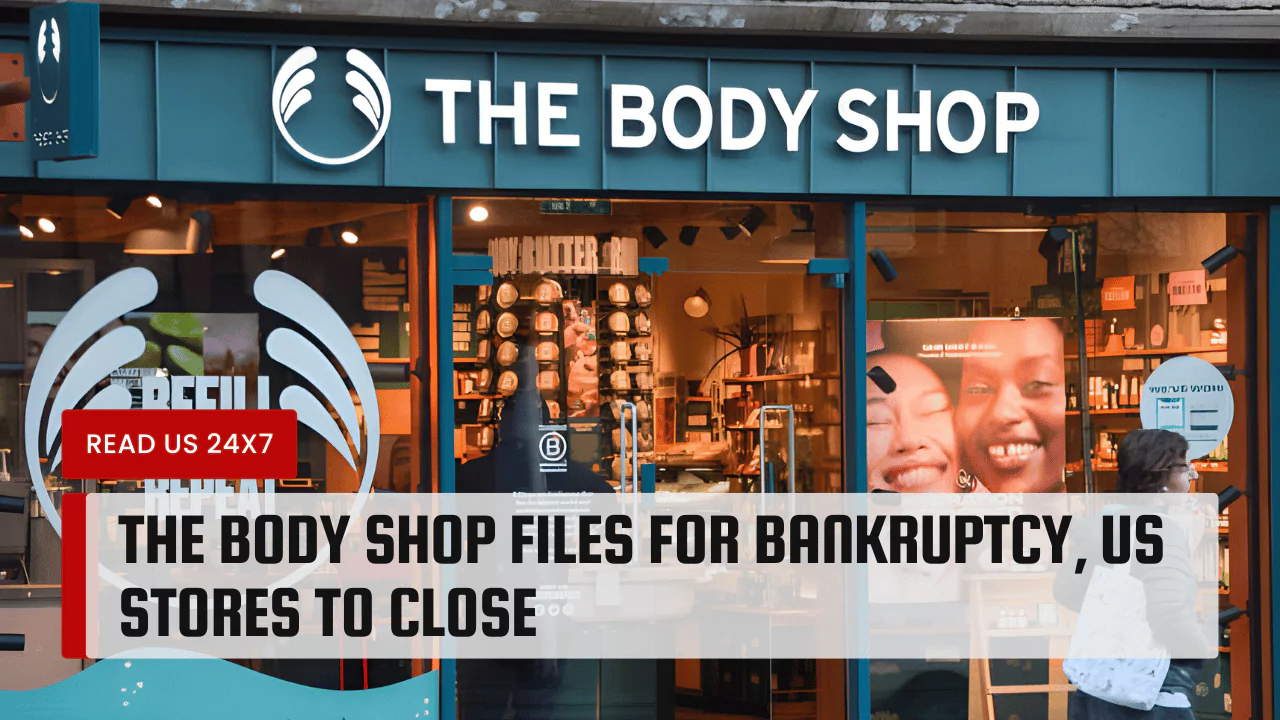The Body Shop, a renowned UK-based cosmetics company, has recently announced its decision to file for bankruptcy, marking the end of its operations in the United States. The firm revealed that its US subsidiary ceased operations as of March 1, indicating a significant shift in its business strategy. This move will result in the closure of all US-based stores, signaling a pivotal moment in the company’s history.
Events Leading to The Body Shop’s Bankruptcy
The decision to shutter its US operations follows a series of events that have culminated in this outcome. The company has initiated the process of closing its Canadian stores, with 33 out of 105 locations already beginning liquidation sales. Additionally, online sales through Canada’s e-commerce platform will cease, although physical stores will remain open for the time being.
The Body Shop’s declaration of bankruptcy comes amid reports of high inflation, which has adversely impacted traditional retailers operating primarily within malls and targeting middle-class consumers.
Reasons Behind The Body Shop’s Bankruptcy
Several factors have contributed to The Body Shop’s decision to file for bankruptcy. Intense competition from online beauty brands has eroded its market share, while declining foot traffic in malls has further exacerbated its financial challenges. Moreover, consumer preferences have shifted towards more sustainable and ethical beauty options, posing additional challenges for the company’s traditional business model.
Impact on Employees and Suppliers
The closure of The Body Shop’s US stores will inevitably result in job losses for its employees, adding to the economic ramifications of its bankruptcy filing. Furthermore, fair trade suppliers may find themselves grappling with unpaid invoices, potentially straining their financial stability. The repercussions of The Body Shop’s bankruptcy extend beyond its borders, impacting its German arm as well.
Lessons Learned from The Body Shop’s Bankruptcy
The Body Shop’s situation serves as a cautionary tale for retailers:
- Importance of adapting to changing consumer trends: Consumers’ shopping habits and preferences are constantly evolving. Retailers need to adapt their strategies to stay relevant and competitive. Failing to do so, like The Body Shop, can lead to decline.
- Embracing sustainability and ethics: While The Body Shop was a leader in these areas, they needed to keep innovating. Consumers today have a wider range of sustainable and ethical brands to choose from.
- Staying competitive in the digital age: The rise of online shopping requires retailers to have a strong online presence. The Body Shop may not have done enough to compete effectively with online beauty stores.
- The future of retail and brick-and-mortar stores: The Body Shop’s struggles highlight the challenges faced by traditional stores. Retailers need to find innovative ways to attract customers in an increasingly digital world. This might involve offering unique in-store experiences or seamlessly blending online and offline shopping options.


